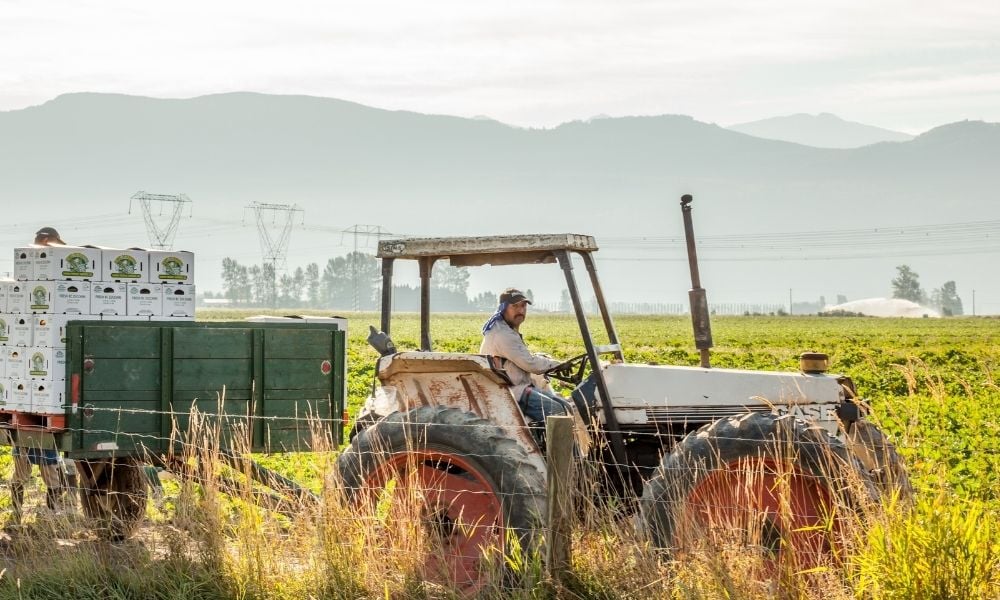Government is letting employers abuse workers, claims workers rights advocate

Canadian Nectar Products in Prince Edward Island – and its affiliate companies – has been facing numerous complaints of abuse from temporary foreign workers (TFWs) for years, but the employer has faced no punishment, according to a report.
This is the case even though at least 31 TFWs – out of 217 Canadian Nectar Products and its affiliated companies that were given permission to hire from 2017 to 2021 – have come forward to the federal government with abuse allegations, reported CBC.
Ottawa found some basis for these complaints, enough for the federal government to allow them to be released from their work contracts.
Yet, Canadian Nectar Products and its affiliated companies have not yet faced federal sanctions, such as monetary penalties or being formally banned from hiring TFWs, according to CBC.
In 2022, the Canada Border Service Agency (CBSA) issued a search warrant and visited several Canadian Nectar Products locations – to investigate allegations that the employer was defrauding foreign workers by charging "large sums of money" for jobs that did not exist and forcing them to live in unsafe conditions.
"The whole experience was like a nightmare for me," Yan Liu, who moved to Canada from China in 2021, said in the CBC report.
Liu is one of four workers cited in the report who claimed that they paid up to $30,000 to immigration consultants who promised them jobs in Canada and eventually a path to permanent residency, only to be disappointed. All were dealing with companies the CBSA alleges were connected to Canadian Nectar Products.
It turns out, Kamalpreet Khaira, who is Canadian Nectar president, also owns CWC Immigration Solutions – the immigration consultancy that Yan Liu alleged charged him large sums for his work permit, according to the report.
The CBSA alleged that Khaira runs multiple companies to access additional TFWs. It also claimed that people working for Khaira provide "fraudulent documentation to support work that did not actually take place," noted CBC, citing the search warrant.
The CBSA also alleged that Khaira's businesses were "generating false pay stubs in exchange for cash from foreign nationals." Investigators alleged workers were given fewer hours than promised and told they could get a pay stub for full-time hours if they paid the difference in cash.
However, none of the allegations in the search warrant application has been proven in court, according to CBC.
Call for revamp of TFW program
Ryan MacRae, a migrant worker program coordinator at the non-profit Cooper Institute in Charlottetown, noted in the CBC report that TFWs should not be paying for their work permits. Instead, the company that hires them must apply to the federal government for a Labour Market Impact Assessment and pay a $1,000 application fee.
But while the employer is the one breaking the law, the federal government must also be held liable for continuing the TFW program system that simply is not working, said a workers rights advocate in P.E.I. in the CBC report.
"It's not uncommon for me to hear any one or a couple of these issues on a weekly basis… but it's not often that they're all this extreme," said MacRae in the report.
MacRae also said that the government is simply not imposing penalties that are severe enough to change employer behaviour.
"The employer, I think that's the easy culprit here, but what we really should be focusing on is the government," said MacRae. "The government is allowing these things to happen."
"It's incredibly frustrating because we have these mechanisms in place for the government to protect people, but they're just not working, they're not working at all," MacRae said.
The abuse of TFWs also happens in British Columbia, and in other parts of the country, according to previous reports. And advocacy groups have previously called on the federal government to revamp the temporary foreign workers system to better protect workers.
"It's incredibly frustrating because we have these mechanisms in place for the government to protect people, but they're just not working, they're not working at all," MacRae said.
In September 2023, one United Nations (UN) expert claimed that the system makes migrant workers vulnerable to contemporary forms of slavery, as they cannot report abuses without fear of deportation”.
That comment, however, “belies all the efforts by the source countries, governments that prepare these workers for successful employment in Canada,” said Stefan Larrass, senior policy advisor at Ontario Fruit and Vegetable Growers’ Association.





